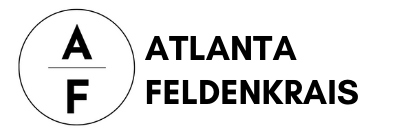3 Things Your Shoulders Wish You Knew
Lessons From An Old Tennis Injury
In my last email, I explored why shoulder issues are so common.
Today, I want to share my own shoulder injury story and the key lessons it taught me.
Injury Strikes!
I knew something was wrong the moment I hit that serve.
A sharp pain shot through my shoulder, and I could barely lift my tennis racquet.
A doctor confirmed my fear: I had torn my labrum, the rubber-like tissue stabilizing the shoulder joint. Surgery and six months of rehab were recommended, but I hesitated. Many with surgically repaired shoulders still experience pain and discomfort. I decided to explore other options.
This was in 2009. I elected not to have surgery and slowly got back to playing tennis, but the pain lingered. My shoulder wasn’t 100%, and I worried about worsening the injury every time I played. Foam rolling and stretching brought brief relief, but it never lasted.
In 2012, I discovered the Feldenkrais Method®, which transformed my understanding of my injury’s root causes and my approach to healing.
3 Things I Wish I’d known Earlier
1) Shoulders Are Intimately Connected to the Spine & Chest
Healthy shoulders rely on a balanced relationship with the chest and spine. Tightness or unnecessary muscle contractions in these areas can lead to poor movement patterns and joint strain. The reverse is true too: stiff shoulder blades often cause neck or jaw pain.
2) Treating the Injury Site Isn’t Enough
Focusing solely on the injured area overlooks the habits and movement patterns that caused the injury. This is why many surgically repaired shoulders end up reinjured. True, long-term healing requires addressing the root causes and retraining the body to move more effectively
3) Modifying Movement Habits is The Missing Link:
In my case, tight chest and neck muscles were pulling my shoulder out of alignment, restricting its movement. Through Feldenkrais lessons, I learned to release unnecessary tension, restoring alignment and allowing my shoulders to move freely and naturally.
The result? My shoulder improved, and for the first time in years, I played pain-free.
Life After Injury
Today, I have better shoulder mobility than I did before the injury and still enjoy tennis several times a week. My serve is still the strongest part of my game.
This experience taught me that healing is about more than just fixing the injury—it’s about changing how we move, breathe, and live.
What’s Next?
In the next few posts, I’ll dive deeper into each of these three lessons and share practical tips to help you improve your shoulder health and movement habits.
Stay tuned!
Ravi
PS: What’s the biggest challenge you face with your shoulders? Reply to this post—I’d love to hear your story!
PPS: Know someone who’d find this helpful? Forward this post and invite them to join the conversation. Let’s spread the word as we are just getting started!





Leave a Reply
Your email is safe with us.